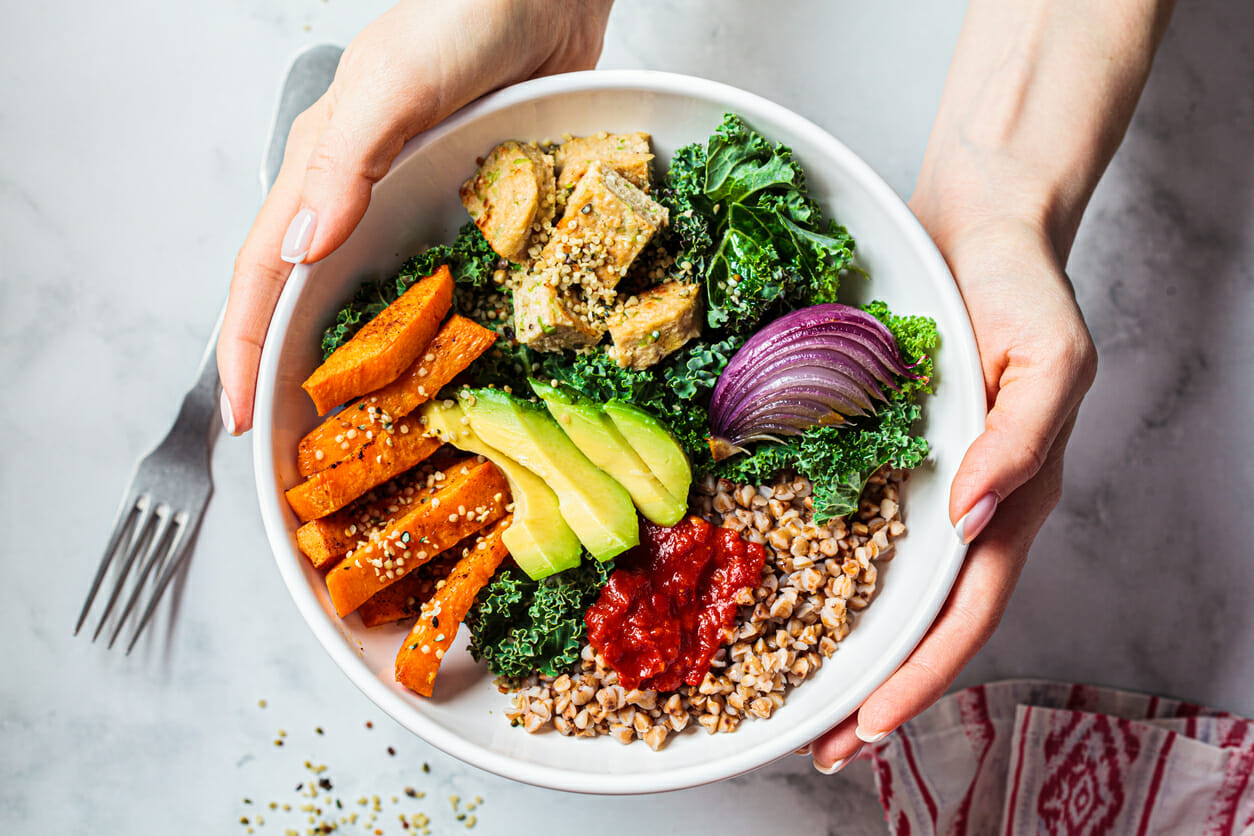Just in time for World Vegetarian Day (Oct. 1) and World Vegan Day (Nov. 1 ), WalletHub recently released its report on 2022’s Best Cities for Vegans & Vegetarians, and Phoenix ranks very high. The full report reflects how vegan and vegetarian-friendly various restaurants and other consumer options are for the 15.5 million U.S. adults having a vegetarian or vegan diet, and reveals how Phoenix ranks in several categories.
To determine the best and cheapest places for following a plant-based diet, WalletHub compared the 100 largest cities across 17 key indicators of vegan- and vegetarian-friendliness. The data set ranges from the share of restaurants serving meatless options to the cost of groceries for vegetarians to salad shops per capita.
READ ALSO: Ranking Arizona: Top 10 vegan restaurants for 2022
The vegetarian and vegan lifestyle in Phoenix (1=Best; 50=Avg.):
44th – Cost of Groceries for Vegetarians
48th – % of Restaurants Serving Vegetarian Options
43rd – % of Restaurants Serving Vegan Options
15th – Farmers Markets & CSA Programs per Capita
1st – Juice & Smoothie Bars per Capita
7th – Salad Shops per Capita
8th – Vegetable Nurseries per Capita
From the experts:
What tips do you have for a person that wishes to have a vegetarian/vegan lifestyle while on a budget?
“A plant-based lifestyle can be very affordable. Frozen or canned produce can be more affordable than fresh, especially if you are eating out of season. Frozen and canned also keep for much longer, which minimizes costs related to food waste. Making your own meals will cost less than relying on prepackaged meals. Minimally processed proteins like beans, peanut butter, dairy, or tofu are less expensive than meat alternatives that are intended to replicate burgers, chicken nuggets and so on.”
Robin M. Tucker, Ph.D., RD, FAND – associate professor, Michigan State University
“Eating plant-based protein can be extremely economical. I recommended buying bulk dried pulses (which include beans, lentils and peas) and stocking up when they go on sale. Dried beans are inexpensive, and using reusable bags when buying in bulk is environmentally friendly as well. To prepare dried beans, soak them overnight, simmer on medium heat for an hour in the morning, rinse them off and store them in the refrigerator. They should last several days and they freeze well.”
Heidi Lynch, Ph.D., RDN – associate professor, Point Loma Nazarene University
What can parents do to encourage children to consume more veggies?
“One of the most important things parents can do is to model eating fruits and vegetables. Children learn to eat by watching their parents eat and their preferences reflect what they are served regularly. This means parents eat fruits and vegetables every day and incorporate them into meals and snacks that they provide to their children.”
Jane Burrell, M.S., RD, CDN – associate teaching professor, Syracuse University
“Parents should serve (or offer) a variety of fruits and vegetables prepared in a variety of ways including raw, with dip, cooked, roasted, and blended in smoothies and soups, etc. I believe the parent’s job is to expose the children to the food and it is the child’s job to decide how much to eat. I think eventually kids become interested in foods and will try them…Children often need to be exposed several times to a food dish before they like it. I also found that my children were more accepting of vegetables when they were blended in soups or smoothies or lightly salted and roasted in olive oil. I even hooked a few college athletes on broccoli and cauliflower by serving it broiled with garlic and olive oil. And it is so easy!”
Enette Larson-Meyer, Ph.D., RD, CSSD, FACSM – professor; Director, Master in Nutrition and Dietetics Program, Virginia Polytechnic Institute and State University
What are the most common mistakes people make when being on a vegan or vegetarian diet, and how can they avoid them?
“I feel the most common mistake of eating a vegan or vegetarian diet is the motivation behind the change. If a person drastically changes their eating (in any form) due to a strongly held desire to lose weight, or change their body size, then I would categorize this as a “diet.” From the research, we know that dieting or restriction with eating is not successful long-term (i.e., not greater than a couple of years at most). If, however, a person is motivated to eat a vegetarian or vegan diet due to moral, ethical, religious or just food preferences, they are less likely to be affected by a scarcity mindset, and more likely to continue eating vegetarian or vegan. Eating in a way that aligns with your core values is less likely to feel restrictive. Whereas, removing food in hopes that it will lead to weight loss feels the restrictive and long-term success of maintaining this eating pattern is diminished. With restriction we often see the pendulum swing in an equal and opposite direction, leading to an increased desire to eat the restricted foods even more.”
Alisa Dodds, MS, RDN – senior lecturer, Loyola Marymount University
“A common mistake I see is that people just cut out animal foods and do not replace them with other plant-based foods. This can leave someone without enough calories to be satisfied. Also, being vegetarian does not mean that whole food groups should be eliminated, instead, look for alternatives in each one. For example, replace meat or chicken with beans and rice and substitute soy milk or yogurt for cow’s milk and yogurt. Another thing I see is the reliance on processed plant-based foods instead of cooking or using whole foods. Processed food of all types has added sugars and sodium that most people do not need more of.”
Jane Burrell, M.S., RD, CDN – associate teaching professor, Syracuse University




